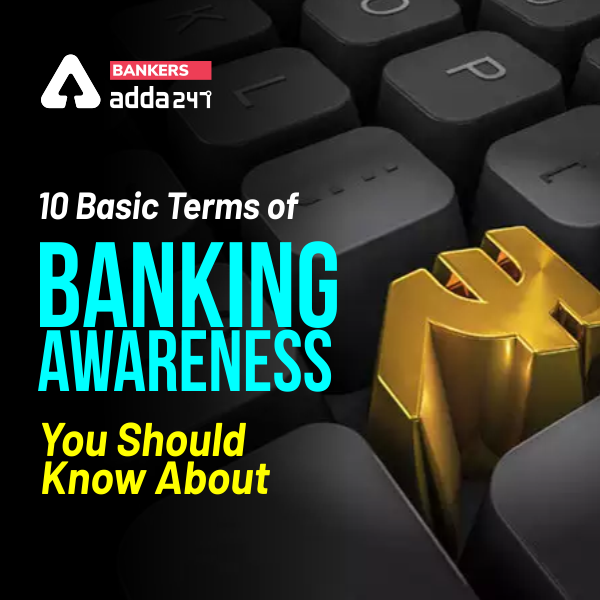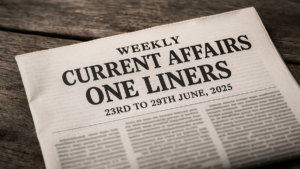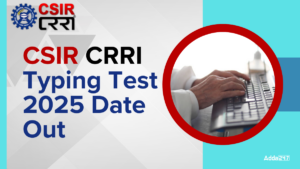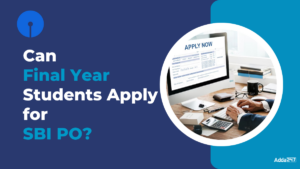Banking Awareness is one of the most important topics asked in the General Awareness Section of banking examinations. When attempting to give banking exams, there are certain terms that one must always know about and remember since they aren’t just required for the exams, but also used on a daily basis.
Practice with,
- SBI Clerk 2020 Maha Pack (Test Series | Live Classes | Video Course | Ebooks)
- Get SBI Clerk Mains Test Series for Regular Practice
Moreover, during the interviews conducted in the IBPS and other exams, such as RRB, IBPS PO & Clerk, BOB PO, RBI Grade B and SBI exams, these terms are the most basic things you should know about if asked in the interview. Therefore, these terms of banking awareness play a significant role in the final selection of the candidate. These terms can also help an individual to maintain their bank accounts. 10 of the most basic terms of Banking Awareness that you should know about are as follows:
ACCOUNT
An account is a record of all the transactions that take place between two people or transactors. These transactors may be in two departments of a single business. The account acts as a basic element in all systems of recording business transactions. When it comes to retail trading, an account refers to the credit facility which is automatically given to a customer with whom an account is associated and operated.
In general terms, an account is a systematic representation of all the transactions that a person does. It shows all of their savings, along with the money that they may have debited or credited.
ASSET
An asset is a resource with an economic value, which an individual, organisation or corporation owns or has control over. It is owned with the expectation that it will reap future benefits to its owner. It is something that can not only generate cash flow but also reduce expenses or improve sales, among other things. Assets are mainly of five types, namely Current Assets (which consists of cash, stock and book debts), Fixed Assets (which include buildings, plant, machinery, land, etc.). There are Intangible Assets (which have no physical presence, such as patents, copyrights, goodwill and trademarks), Tangible Assets (such as cash, stocks, bonds, property, equipment, etc.) and Financial Assets (which consist of bonds, stocks, cash, and others).
AUTOMATED TELLER MACHINES
Also commonly known as ATMs, Automated Teller Machines refer to electronic machines that are set up by the different banks and disburse cash or accept cash deposits by account holders. The process of disbursement or cash deposit is done without any human intervention whatsoever. These machines are found almost everywhere, especially in places of higher economic activity, such as malls, hospitals, shopping complexes, markets, etc.
BALANCE SHEET
A balance sheet is a financial statement which reports a company or organisation’s assets, liabilities as well as the equity of shareholders for a specific period of time. Additionally, it shows the set value of every item which is an asset to the company. In simple terms, a balance sheet can be referred to as a statement of a company’s net worth, or financial position.
BANK CREDIT
Bank credit is the total amount of funds that a business or person can borrow from a bank. This includes things like mortgages, credit card accounts as well as overdraft lines. Bank credit depends entirely on the fact whether there is any kind of collateral involved, what other banks are offering, as well as the creditworthiness of the borrower.
BANK DEPOSIT
Bank deposit is the placing of funds in an account within a bank. It is mainly of two types, namely Demand Deposit and Time Deposit. Bank deposits are done for the safekeeping of a person’s money.
BOUNCED CHEQUE
A bounced cheque is a cheque which the bank refuses to pay to the payee. A situation of a bounced cheque usually takes place when there are insufficient funds in the payer’s account, in addition to signature mismatch, or other valid reasons.
BANKRUPTCY
Bankruptcy is a legal process wherein the property of the defaulter, also known as an insolvent debtor, is taken for the creditor’s benefit. Under this process, the debtor seeks relief from some or all of their debts when they cannot repay them to their creditor. Bankruptcy is often imposed by court order after the debtor initiates the proceeding.
BILL
A bill is a short-term instrument of debt, usually in the form of a document ordering the debtor (or drawee) to pay their creditor a stated sum of money within a specified date or on-demand.
DEBIT CARD and CREDIT CARD
Debit card and credit card work differently and are two different instruments to make payments. The card is made of plastic and has an electronic chip embedded in it. The debit card is used to withdraw money or make payment from your bank account, whereas the credit card allows the user to borrow money against a line of credit from the bank.
Click Here to Register for Bank Exams 2020 Preparation Material
Also Read,
- Coronavirus Cases In India Statewise Report and Coronavirus Helpline Number
- Current Affairs March 2020: The Hindu Review | Download Now



 Weekly Current Affairs One Liners 23rd t...
Weekly Current Affairs One Liners 23rd t...
 CSIR CRRI Typing Test 2025 Date for JSA ...
CSIR CRRI Typing Test 2025 Date for JSA ...
 Can Final Year Students Apply for SBI PO...
Can Final Year Students Apply for SBI PO...


